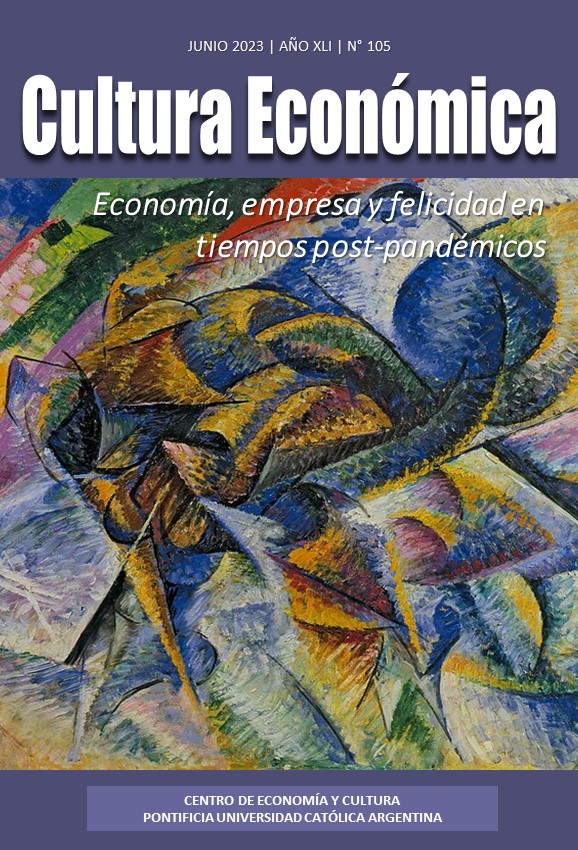The unwanted consequences of money from the point of view of psychology and the Economy of Happiness
DOI:
https://doi.org/10.46553/cecon.41.105.2023.p67-84Keywords:
happiness, economy, money, psychology, motivationAbstract
Money is the central tool of many aspects of the economy, companies, individuals and governments give money a preponderant role in decision making. The main objective of this work was to analyze the consequences of money in society from various aspects, based on a review of the literature of various disciplines such as the Economics of Happiness, positive psychology and the psychology of motivation. The methodology used was of an analytical-conceptual nature. The advances in the different disciplines suggest that, sometimes, the use of money ends up causing unwanted consequences, often causing a result exactly opposite to the desired one. Indeed, monetary incentives can reduce the intrinsic motivation of employees, affecting the productivity of companies and the happiness of workers who, for their part, do not see the increase in their income reflected in an increase in happiness in the same proportion. The same is observed at the aggregate level, where despite the obsession of governments with the indicator of the gross domestic product, an increase in it is not equivalent to higher rates of happiness of the population, as explained, for a long time, by the Economics of happiness. We find ourselves, then, with companies willing to incur a cost to increase their productivity and employees willing to sell their time to the highest bidder, but sometimes neither some obtain the desired productivity nor others the happiness that, they believe, the increase in their income levels will bring.Downloads
References
Achor, S. (2011). The happiness advantage: The seven principles of positive psychology that fuel success and performance at work. Random House.
Arce-Velasco, F. R., & Becerril-Díaz, E. (2020). ¿Educación para la Felicidad? Educación en torno a la Economía de la Felicidad en Bolivia y México. Fides et Ratio, vol. 20, 167-187.
Ariely, D., Gneezy, U., Loewenstein, G., & Mazar, N. (2009). Large stakes and big mistakes. The Review of Economic Studies, 76(2), 451-469.
Bowles, S. (2016). The moral economy: Why good incentives are no substitute for good citizens. Yale University Press.
Cabrera, A. (2019). Economía y felicidad: ¿Importa lo que las personas entienden por felicidad? Revista Chilena de Economía y Sociedad, 13(2), 26-40.
Easterlin, R. A. (2021). An Economist’s Lessons on Happiness: Farewell Dismal Science! Springer.
Easterlin, R., & O'Connor, K. (2020). The Easterlin Paradox. Institute of Labor Economics (IZA).
Frey, B., & Stutzer, A. (2002). What can economists learn from happiness research? Journal of Economic Literature, 40(2), 402-435.
Hopper, E. (24 de febrero de 2020). Maslow’s hierarchy of needs explained. ThoughtCo. https://www.thoughtco.com/maslows-hierarchy-of-needs-4582571
Kahneman, D., & Deaton, A. (2010). High income improves evaluation of life but not emotional well-being. Proceedings of the National Academy of Sciences, 107(38), 16489-16493.
Levy, N. (2020). Informe: Happiness among Americans dips to five-decade low. University of Chicago.
Lordemann, J., Mita, M., & Jiménez, A. (2015). Productividad y Felicidad: ¿Las personas más productivas son más felices? (Documento de Trabajo No. 13/15). Universidad Católica Boliviana, Instituto de Investigaciones Socio-Económicas. https://www.iisec.ucb.edu.bo/assets_iisec/publicacion/2015-13.pdf
Pink, D. (2011). La sorprendente verdad sobre qué nos motiva. Gestión 2000.
Ryan, R., Bradshaw, E., Deci, E., Sternberg, R., & Pickren, W. (2019). A history of human motivation theories. The Cambridge handbook of the intellectual history of psychology. Cambridge University Press.
Downloads
Published
How to Cite
Issue
Section
License













